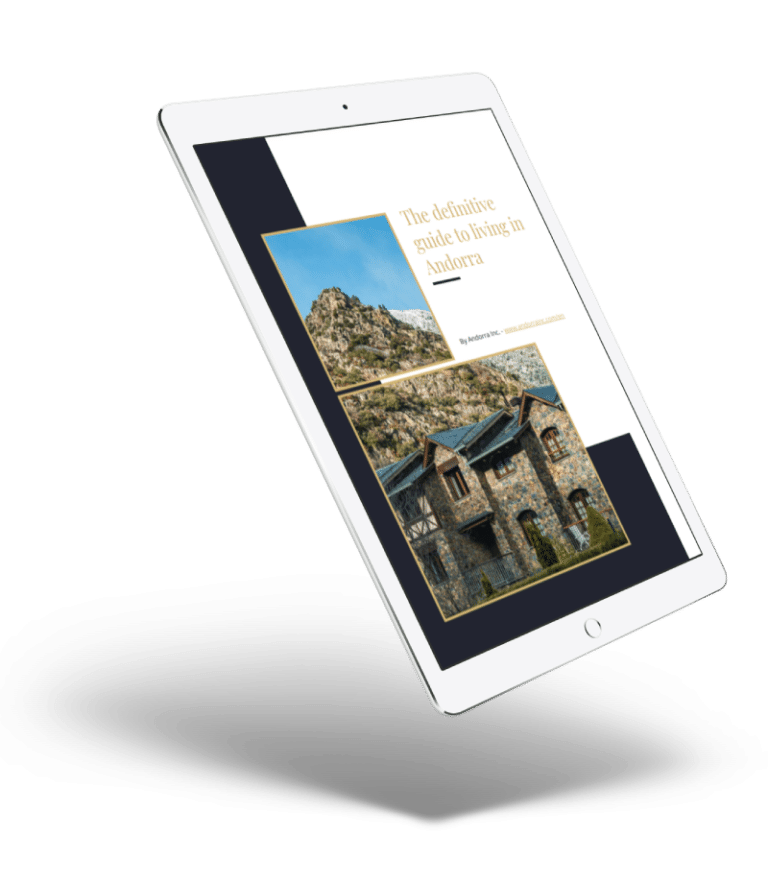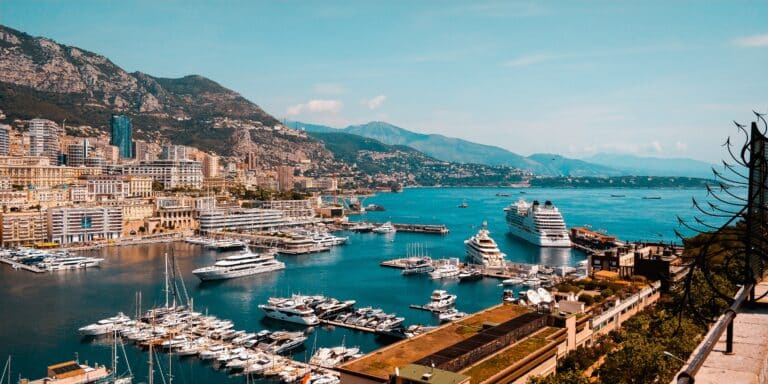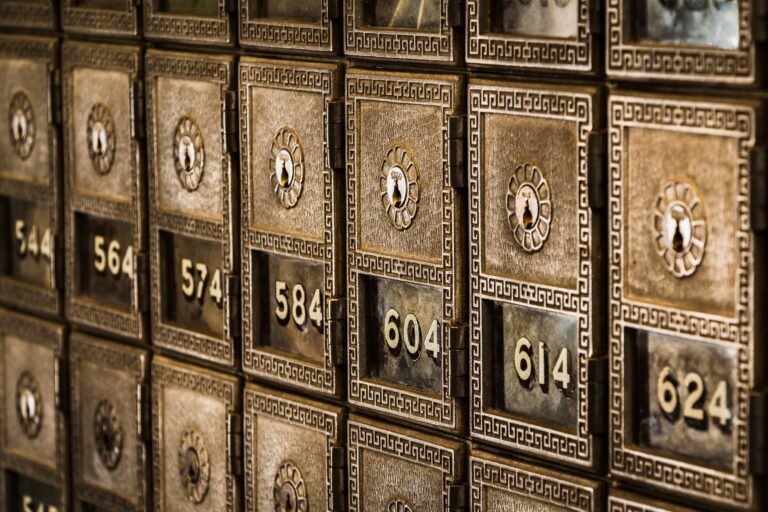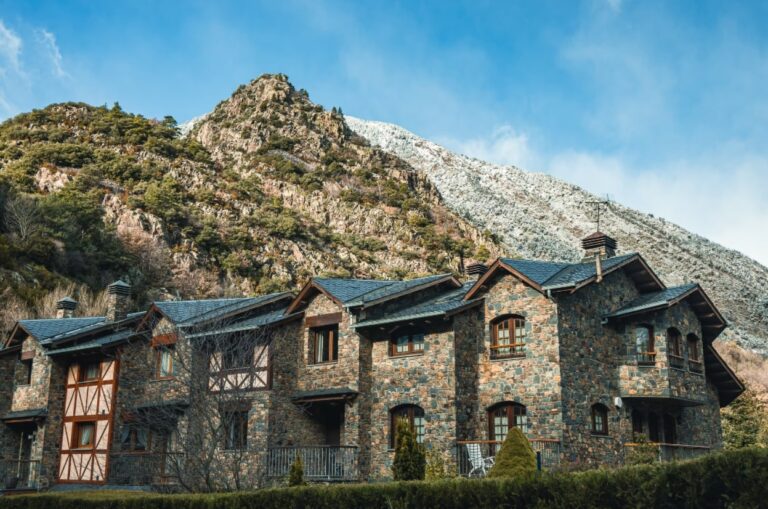
Written by Marc Cantavella, AndorraInc Co-Founder & Andorran Tax Expert
Questions? Ask Marc on Whatsapp
Let’s start by clarifying that while Andorran passive residency or non-profit residency is very similar to what other countries call “Golden Visa”, practically no one in the country refers to this residence as the Andorra Golden Visa.
It is called passive (“residència passiva” in catalan) to distinguish it from the other residence permit that is most commonly used in the country, the active residence. While active residence is the entry route for those who come to Andorra to work (self-employed or employed), passive residence requires fewer days of stay in the country and is designed especially for those who have passive income or income from abroad.
Passive residence also presupposes a certain purchasing power since normally it requires a significant investment (approximately €600,000) which we will detail later.
Below you will find a complete guide to passive residence and all its requirements, advantages and features.
New report
The report “The definitive guide to living in Andorra” is now available, with detailed information on Andorra’s tax framework, residence and society.
Click here to download it for free.
Who is the passive residence for?
Andorran passive residence can be granted for the following reasons:
- For reasons of scientific, cultural or sporting interest (many Moto GP professionals have availed themselves of it).
- Professionals and entrepreneurs with projects at international level (large entrepreneurs with “overseas” business).
- For investment in Andorra.
However, its most popular aspect is undoubtedly the third one, the one of residence by investment, so in this guide we will focus on it.
This modality is aimed at people who wish to live in Andorra without working as an employee and living mainly from their passive income, so it is ideal for retirees and HWNI (“High-Net-Worth Individuals”) who live from their rents, investment portfolios, bank interests and income generated outside Andorra in general.
In short, if you have a high purchasing power and have weighed living in Andorra without an employment relationship with any company, this residence is probably the way that suits you best.
It is important to emphasize the “without an employment relationship” because this residence permit has many advantages (as we will see in the next section), but it also has the disadvantage that it is completely incompatible with a work activity in Andorra.
If you entered the country as a passive resident and received an irresistible job offer from an Andorran company, you would have to undo your passive residence and reapply for active residence.
You could, in certain cases, be paid for work done abroad or for the role of administrator in an Andorran company, although these cases should be analyzed individually.
Advantages of passive residence
Passive residence, despite its barriers to entry (it is mainly for people with some capital), offers a number of very attractive advantages. Among them are:
Ideal for non-UE nationals
For some types of residence, such as active residence as an employee, Andorra gives priority to people from Spain, France and Portugal.
However, for passive residence there is no distinction between these countries, other countries of the European Union and any other country, which makes it very popular for citizens of countries such as Mexico, Argentina, Uruguay, Russia, etc.
For non-Europeans this permit is especially convenient because it also gives the right to move freely not only within Andorra, but also within Spain, France and Portugal, regardless of the passport.
Less controlled
It is subject to a less exhaustive control than active self-employed residence. Generally, the Andorran police do not check that the 90-day requirement is met in the country.
Quick processing
Although the Andorran administration is not the fastest in its procedures, obtaining passive residence is a relatively quick procedure. From the day we start the process, you can obtain your passive residence permit in two months.
Access to Andorran taxation
As we will later explain, administrative residence (the residence permit you obtain through passive residence) does not automatically mean that you are an Andorran tax resident.
However, if you meet the requirements and do obtain this status, you will be able to benefit from an incomparable tax framework, with no or very low taxes on capital gains, interest, dividends, etc.
Later in this guide we will also explain the fabulous Andorran tax system.
Lower minimum yearly stay
It is very convenient for those people who travel a lot, as it only requires staying in the country 90 days instead of the 183 days of self-employed residency.
(Remember that here we are still talking about minimum days to maintain administrative residency, but that these days may be insufficient for tax residency.)
What are the requirements?
These are the specific requirements to obtain Andorran passive residence by investment:
- Have a real estate property in Andorra or a rental contract.
- Invest in a real estate property with a minimum value of €552,500, pay this amount in a banking product with Andorran ISIN or invest it in an Andorran company.
- Minimum residence period of 90 days.
- Certificate of good conduct.
- Private medical insurance.
- Medical certificate issued in Andorra.
- A deposit of more than €47,500, plus €9,500 per dependant (for the partner or each child coming to live in the principality with such residence), with the Andorran Financial Authority until the passive residence is not settled.
- Conformity of income of more than 300% of the Andorran minimum wage, in 2025 situated at 1,447.33€. In addition if you have dependents you must add 100% extra per dependant.
In general, the passive residence implies an investment of 600,000 €, in addition to being able to prove that you are not economically dependent.

The €552,500 amount
These are the alternatives for the investing:
- Real estate properties located in the territory of the Principality of Andorra.
- Participations in the equity of Andorran companies
- Debt or financial instruments issued by Andorran entities
- Debt instruments issued by any public administration of the Principality of Andorra
- Life insurance products contracted with entities resident in the Principality of Andorra
- Non-interest-bearing deposits with the Andorran Financial Authority
We have mentioned before that the amount to invest is €552,500. According to the law the amount to be invested is actually €600,000, but the law also says that:
- €47,500 must be deposited without remuneration in the AFA (Andorran Financial Authority)
- Another €9,500 must be deposited in the AFA for each person under your responsability
- The deposits in the AFA are subtracted from the €600,000 figure
Therefore, the figure of €552,500 is really a simplification that would only apply if you came to the country without persons under your responsability.
The final amount to be invested is simply the result of subtracting €47,500 and €9,500 for each family member from €600,000. If, for example, you came to Andorra with a wife and three children, the deposit in the AFA would be €85,500, and therefore the amount to invest in a real estate property (or whatever you want) would be €514,500.
The deposit at the AFA can be recovered at any time you decide to undo your residency, either because you leave the country or because you change the type of residence permit.
New report
The report “The definitive guide to living in Andorra” is now available, with detailed information on Andorra’s tax framework, residence and society.
Click here to download it for free.
The real estate route
Although there are various investment options, the truth is that the majority of those who come to the country through passive residence opt for real estate investment.
Even if the housing prices in Andorra have risen significantly in recent years (are now on a par with Barcelona or Madrid), the passive residents that we at AndorraInc bring to the country do not usually consider these prices to be prohibitive.
What’s more, passive residents from the United States, the United Kingdom, Norway, the United Arab Emirates or Monaco are often pleasantly surprised when they find out Andorran real estate prices, as they are significantly lower than in their countries of origin.
However, the rapid escalation of prices is a serious problem for local authorities, which is why a tax has recently been introduced for foreign investment by non-residents or residents who have been in the country for less than three years:
- 3% for the first home
- 5% for the second home
This is a one-off surcharge applied at the time of purchase of the property, not a tax paid annually.
In other words, if you purchase a property to obtain passive residence, since you will not have been living in the country for three years, you will have to pay this surcharge.
Does this allow me to pay taxes in Andorra?
Some consultants make the mistake of selling passive Andorran residency and its 90-day rule as a panacea that allows you to reduce your tax bill and continue living in your country. Of course, this is completely wrong.
This is the distinction between administrative residence and tax residence that we mentioned earlier:
- Administrative residence: the Andorran passive residency is merely a migratory authorization to reside in the country legally. We are talking about the distinction between administrative residence and tax residence that we mentioned earlier:
- Tax residence: the obligation (privilege, in the Andorran case) to pay taxes in a country. This status requires, broadly speaking, spending 183 days in a country and having the centre of economic and family interests there
For Andorra, sporadic absences are not counted as days outside the country, so, especially if there are no conflicts with the center of economic or financial interest being in another country, it is not strictly necessary to spend those 183 days in the Principality.
However, to avoid potential conflicts, and especially to ensure that you do not spend more days of the year in another country (which is extremely risky), we always advise to spend at least those 183 days in Andorra if you want to continue paying taxes here and avoid inspections from third countries.
How much taxes would I pay?
Income Tax
First of all, let’s talk about income tax, the tax you would pay on your work income (from abroad or for a role of as Andorran company administrator) and on real estate rental income:
- Income up to €24,000 per year: exempt from income tax. If your income is €24,000 or less, you pay no tax.
- Income between €24,000 and €40,000: taxed at 5%.
- Income above €40,000: taxed at 10%.
For example, in an annual Income of €70,000:
- The first €24,000 is exempt (0% tax).
- The amount between €24,000 and €40,000 is taxed at 5% (resulting in €800 of tax).
- The amount between €40,000 and €70,000 is taxed at 10% (resulting in €3,000 of tax).
The total income tax would be merely €3,800.
Capital Gains
In Andorra, capital gains taxation on the sale of company shares depends on your ownership percentage and the duration of ownership. Here’s how it works:
- Ownership of 25% or less: capital gains from selling these shares are exempt from taxation.
- Ownership exceeding 25%: capital gains are subject to a 10% tax rate.
- Exemption: if you’ve held the shares for more than 10 years, the capital gains become tax-exempt, regardless of the ownership percentage.
In summary, if you sell shares in a company where your ownership exceeds 25%, you will be subject to a 10% capital gains tax on the profit, unless you’ve held the shares for more than 10 years, in which case the gains are tax-exempt. For both stock shares and company sales, taxation applies only to the net profit, the difference between the sale price and the original purchase cost.
The profits from buying and selling a home, on the other hand, are taxed starting at 15% if the property is sold within the first year of ownership and progressively decreasing each subsequent year. After 12 years, the tax rate is reduced to 0%.
New report
The report “The definitive guide to living in Andorra” is now available, with detailed information on Andorra’s tax framework, residence and society.
Click here to download it for free.
Other Financial Investments
- Dividends:
- From Andorran companies: dividends received are exempt from taxation.
- From non-Andorran companies: dividends are taxed at a 10% rate.
- Interest from bonds and bank accounts: interest income is taxed at 10%.
- Cryptocurrencies: gains from trading cryptocurrencies are subject to a 10% income tax.
- Derivatives: profits from derivative products, such as options and futures, are taxed at 10%.
To calculate your final potential tax bill in Andorra you can use our tax calculator.
How to take the first step?
If you are considering moving to Andorra, we recommend reading the report “The definitive guide to living in Andorra”, with the most complete information on Andorran taxation, residence and society.
For any other matter, please do not hesitate to contact us.
You can contact us without obligation in the following ways:
- By sending an email to [email protected]
- Or by filling out the form below:
Sources
- https://www.bopa.ad/Documents/Detall?doc=CGL_2024_02_21_14_02_59
- https://www.bopa.ad/bopa/034148/Pagines/CGL20221219_11_51_10.aspx
- https://www.afa.ad/
- https://www.consellgeneral.ad/ca/arxiu/arxiu-de-lleis-i-textos-aprovats-en-legislatures-anteriors/vi-legislatura-2011-2015/copy_of_lleis-aprovades/llei-5-2014-del-24-d2019abril-de-l2019impost-sobre-la-renda-de-les-persones-fisiques


 All communications are encrypted and will be treated with absolute confidentiality. Your data will never be shared with third parties.
All communications are encrypted and will be treated with absolute confidentiality. Your data will never be shared with third parties. 




